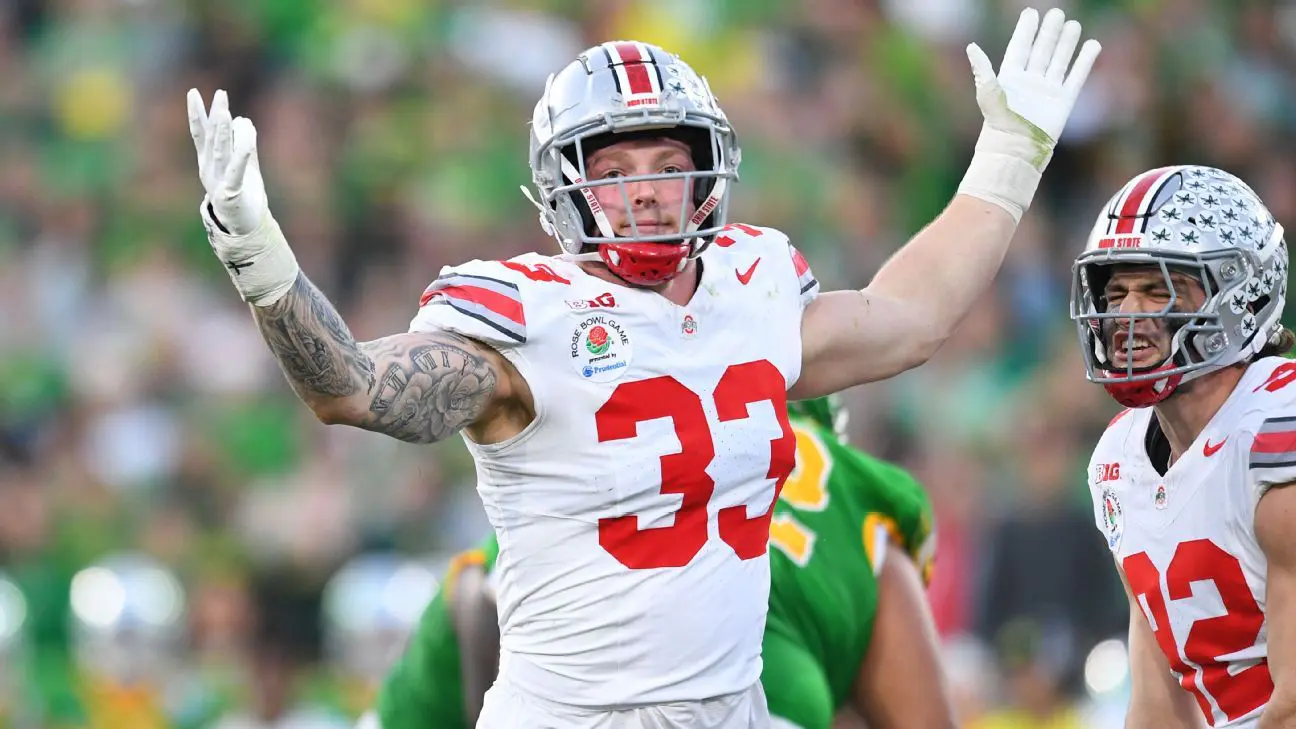TikTok could shut down unless Supreme Court blocks or delays U.S. ban
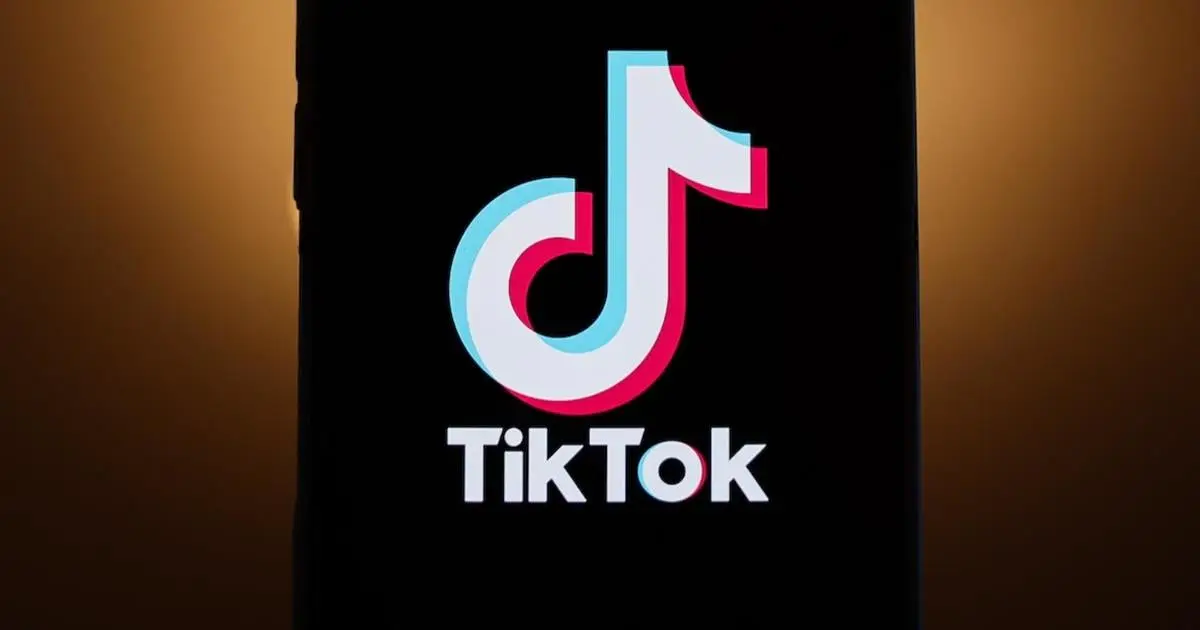
In one of the most important cases of the social media age, free speech and national security collide at the Supreme Court on Friday in arguments over the fate of TikTok, a wildly popular digital platform that roughly half the people in the United States use for entertainment and information.
TikTok could shut down the social media site in the U.S. by Jan. 19 unless the Supreme Court strikes down or otherwise delays the effective date of a law aimed at forcing TikTok's sale by its Chinese parent company.
"Absent such relief, the Act will take effect on January 19, 2025," TikTok said in a Dec. 9 legal filing. "That would shut down TikTok—one of the Nation's most popular speech platforms — for its more than 170 million domestic monthly users on the eve of a presidential inauguration."
Working on a tight deadline, the justices also have before them a plea from President-elect Donald Trump, who has dropped his earlier support for a ban, to give him and his new administration time to reach a "political resolution" and avoid deciding the case. It's unclear if the court will take the Republican president-elect's views — a highly unusual attempt to influence a case — into account.
TikTok and China-based ByteDance, as well as content creators and users, argue the law is a dramatic violation of the Constitution's free speech guarantee.
"Rarely if ever has the court confronted a free-speech case that matters to so many people," lawyers for the users and content creators wrote. Content creators are anxiously awaiting a decision that could upend their livelihoods and are eyeing other platforms.
The case represents another example of the court being asked to rule about a medium with which the justices have acknowledged they have little familiarity or expertise, though they often weigh in on meaty issues involving restrictions on speech.
TikTok has several pathways to avoid a ban outside of Supreme Court intervention, experts told CBS News.
Trump could take action once he's in office and ask the Justice Department not to enforce the law or prosecute tech companies, like Apple and Google, who host TikTok in their app stores. Trump also has the authority to issue a 90-day delay of the law after Jan. 19, though he would have to certify to Congress that "evidence of significant progress" toward a divestiture has taken place.
TikTok won't disappear from Americans' phones on Jan. 19 if the law takes effect. However, users would not be able to update the app and those who don't already have it would not be able to download it.
The Biden administration, defending the law that President Joe Biden signed in April after it was approved by wide bipartisan majorities in Congress, contends that "no one can seriously dispute that (China's) control of TikTok through ByteDance represents a grave threat to national security."
Officials say Chinese authorities can compel ByteDance to hand over information on TikTok's U.S. patrons or use the platform to spread or suppress information.
But the government "concedes that it has no evidence China has ever attempted to do so," TikTok told the justices, adding that limits on speech should not be sustained when they stem from fears that are predicated on future risks.
In December, a panel of three appellate judges, two appointed by Republicans and one by a Democrat, unanimously upheld the law and rejected the First Amendment speech claims.
Adding to the tension, the court is hearing arguments just nine days before the law is supposed to take effect and 10 days before a new administration takes office.
In language typically seen in a campaign ad rather than a legal brief, lawyers for Trump have called on the court to temporarily prevent the TikTok ban from going into effect but refrain from a definitive resolution.
"President Trump alone possesses the consummate dealmaking expertise, the electoral mandate, and the political will to negotiate a resolution to save the platform while addressing the national security concerns expressed by the Government — concerns which President Trump himself has acknowledged," D. John Sauer, Trump's choice to be his administration's top Supreme Court lawyer, wrote in a legal brief filed with the court.
Trump took no position on the underlying merits of the case, Sauer wrote. Trump's campaign team used TikTok to connect with younger voters, especially male voters, and Trump met with TikTok CEO Shou Zi Chew at Trump's Mar-a-Lago club in Palm Beach, Florida, in December. He has 14.7 million followers on TikTok.
The justices have set aside two hours for arguments, and the session likely will extend well beyond that. Three highly experienced Supreme Court lawyers will be making arguments. Solicitor General Elizabeth Prelogar will present the Biden administration's defense of the law, while Trump's solicitor general in his first administration, Noel Francisco, will argue on behalf of TikTok and ByteDance. Stanford Law professor Jeffrey Fisher, representing content creators and users, will be making his 50th high court argument.
If the law takes effect, Trump's Justice Department will be charged with enforcing it. Lawyers for TikTok and ByteDance have argued that the new administration could seek to mitigate the law's most severe consequences.
But they also said that a shutdown of just a month would cause TikTok to lose about one-third of its daily users in the U.S. and significant advertising revenue.
As it weighs the case, the court will have to decide what level of review it applies to the law. Under the most searching review, strict scrutiny, laws almost always fail. But two judges on the appellate court that upheld the law said it would be the rare exception that could withstand strict scrutiny.
TikTok, the app's users and many briefs supporting them urge the court to apply strict scrutiny to strike down the law.
But the Democratic administration and some of its supporters cite restrictions on foreign ownership of radio stations and other sectors of the economy to justify the effort to counter Chinese influence in the TikTok ban.
A decision could come within days.
Editor's note: This story has been changed to clarify that TikTok could shut down on Jan. 19 if the Supreme Court rules against its request for a temporary injunction that would overturn or delay a law that could lead to a U.S. ban.
When could TikTok be banned? What time is the Supreme Court session? How to listen live
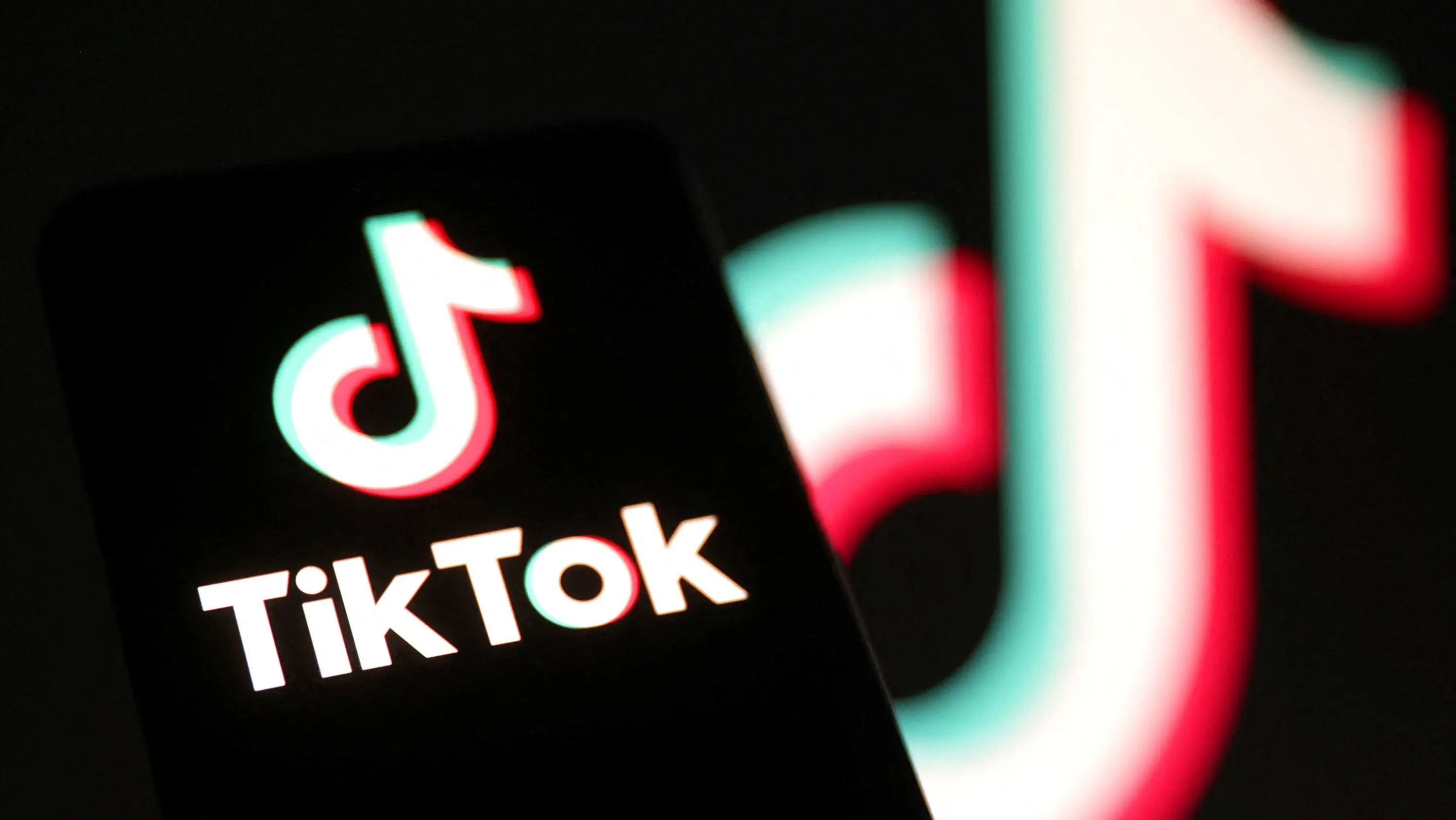
The fate of TikTok sits in the hands of the U.S. Supreme Court, which will hear oral arguments on Friday against legislation that bans the platform in the country in less than two weeks.
Last spring, President Joe Biden signed legislation into law that requires ByteDance, TikTok's Chinese parent company, to sell the platform by Sunday, Jan. 19. If ByteDance fails to do so, TikTok will be banned in the United States, making it illegal for app stores and internet hosting services to distribute the platform. The legislation stemmed from national security concerns that TikTok may be sharing U.S. user data with the Chinese government.
In December, SCOTUS agreed to hear oral arguments against the legislation from TikTok, which has continuously denied the national security threat claims. Friday's session comes just nine days before the ban could be implemented.
Though he has been vocal in the past against TikTok, President-elect Donald Trump has asked SCOTUS to pause the legislation, as he would like to have a chance to save the platform. In the past month, billionaire Frank McCourt and "Shark Tank" host Kevin O'Leary have expressed interest in purchasing the U.S. assets of the platform as part of a consortium called, "People's Bid For TikTok."
Here's what to know about when SCOTUS will hear TikTok's arguments, including how folks can tune in at home.
TikTok is arguing that the Protecting Americans from Foreign Adversary Controlled Applications App, signed into law last spring, is a violation of the first amendment.
SCOTUS will convene for a public session to hear oral arguments from TikTok at 10 a.m. EST on Friday.
SCOTUS could release its decision any time after the oral arguments on Friday.
Oral arguments heard by SCOTUS are open to the public, but seating is limited and offered on a first-come, first-serve basis. A line forms outside the court building beforehand.
Seating for the TikTok oral arguments will begin at 9:30 a.m., according to the SCOTUS website. When court is in session, the Supreme Court building is closed.
To learn more about courtroom seating protocol, visit supremecourt.gov/oral_arguments/courtroomseating.aspx.
Yes, an audio feed will be livestreamed during the public session. The livestream will be available on the SCOTUS website at supremecourt.gov/default.aspx. An audio recording and transcript will also be posted on the SCOTUS website, after the session concludes.
This story was updated to fix an inaccuracy.
Greta Cross is a national trending reporter at USA TODAY. Follow her on X and Instagram @gretalcross. Story idea? Email her at [email protected].
Supreme Court to hear TikTok's final plea against US ban
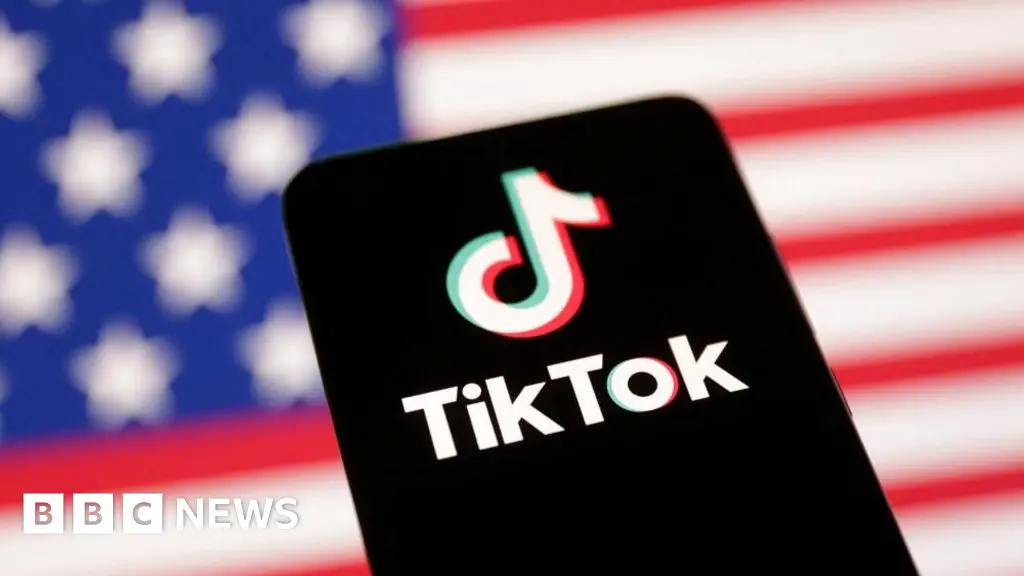
TikTok will appear before the US Supreme Court on Friday in a last-ditch effort to overturn a ban, in a case testing the limits of national security and free speech.
The popular social media platform is challenging a law passed last year ordering the firm to be split from its Chinese owner or be blocked from the US by 19 January.
The US government is arguing that without a sale, TikTok could be used by China as a tool for spying and political manipulation.
But TikTok rejects that claim, arguing it has been unfairly targeted and the measure violates the free speech of its some 170 million American users.
Lower courts have sided with the government, but the case was complicated last month when President-elect Donald Trump weighed in on the dispute and asked for the enforcement of the law to be paused to grant him time to work out a deal.
Analysts have said it was not clear what the Supreme Court will decide, but that reversing the prior ruling - even with a future president's blessing - would be unusual.
"When you have a real government interest pitted against a real constitutional value, it ends up being a very close case," said Cardozo School of Law professor Saurabh Vishnubhakat.
"But in such close cases, the government often gets the benefit of the doubt."
A decision by Supreme Court could be made within days.
Congress passed the law against TikTok last year with support from both the Democratic and Republican parties. The moment marked the culmination of years of concern about the wildly popular platform, which is known for its viral videos and traction among young people.
The legislation does not forbid use of the app, but would require tech giants such as Apple and Google to stop offering it and inhibit updates, which analysts suggest would kill it over time.
TikTok is already banned from government devices in many countries, including in the UK. It faces more complete bans in some countries, including India.
The US argues that TikTok is a "grave" threat because the Chinese government could coerce its owner, ByteDance, to turn over user data or manipulate what it shows users to serve Chinese interests.
Last December, a three-judge appeals court decision upheld the law, noting China's record of acting through private companies and saying the measure was justified as "part of a broader effort to counter a well-substantiated national security threat posed" by the country.
TikTok has repeatedly denied any potential influence by the Chinese Communist Party and has said the law violates the First Amendment free speech rights of its users.
It has asked the Supreme Court to strike down the law as unconstitutional, or order its enforcement to be halted to enable a review of the legislation, which it said was based on "inaccurate, flawed and hypothetical information".
Trump is set to take office the day after the law would come into force.
He had called for banning the app in the US during his first term, but changed his tune on the campaign trail.
The brief that Trump's lawyers filed late last month did not take a position on legal dispute, but said the case presented "unprecedented, novel, and difficult tension between free-speech rights on one side, and foreign policy and national-security concerns on the other".
Noting his election win, it said Trump "opposes banning TikTok" and "seeks the ability to resolve the issues at hand through political means once he takes office".
The filing came less than two weeks after Trump met TikTok's boss at Mar-a-Lago.
One of the president-elect's major donors, Jeff Yass of Susequehanna International Group, is a big stakeholder in the company.
However, Trump's nominee to serve as secretary of state, Florida Senator Marco Rubio, is in favour of banning the platform.
Investors who have expressed interest in buying the TikTok include Trump's former Treasury Secretary Steven Mnuchin and former LA Dodgers owner Frank McCourt.
Attorney Peter Choharis, who is part of the Foundation for Defense of Democracies think tank in Washington, which filed its own brief supporting the US government's case, said it was hard to predict what the court - which has a conservative majority - would do, noting that several recent court decisions have overturned longstanding precedent.
But he said even if Trump was granted the opportunity to try to work out a deal, he expected a ban eventually.
"I don't see any president, including future President Trump, being able to resolve this in a way that's satisfactory for US national security because I don't think ByteDance will agree to it," he said.
The prospect of losing TikTok in the US has prompted outcry from many users, some of whom filed their own legal action last year.
In their filing they said the decision that TikTok could be shuttered "because ideas on that platform might persuade Americans of one thing or another - even of something potentially harmful to our democracy - is utterly antithetical to the First Amendment".
Other groups weighing in on the dispute include the American Civil Liberties Union and Freedom of the Press Foundation, which argued that the US had failed to present "credible evidence of ongoing or imminent harm" caused by the social media app.
Mr Choharis said the government had a right to take measures to defend itself, arguing that the fight was not "about speech" or "content" but about the Chinese government's role.
"It's about control and how the Chinese Communist Party specifically, and the Chinese government more generally, pursue strategic aims using many internet firms and especially social media companies - specifically including TikTok," he said.
US TikTok ban: When could the app be banned and will Trump save it?
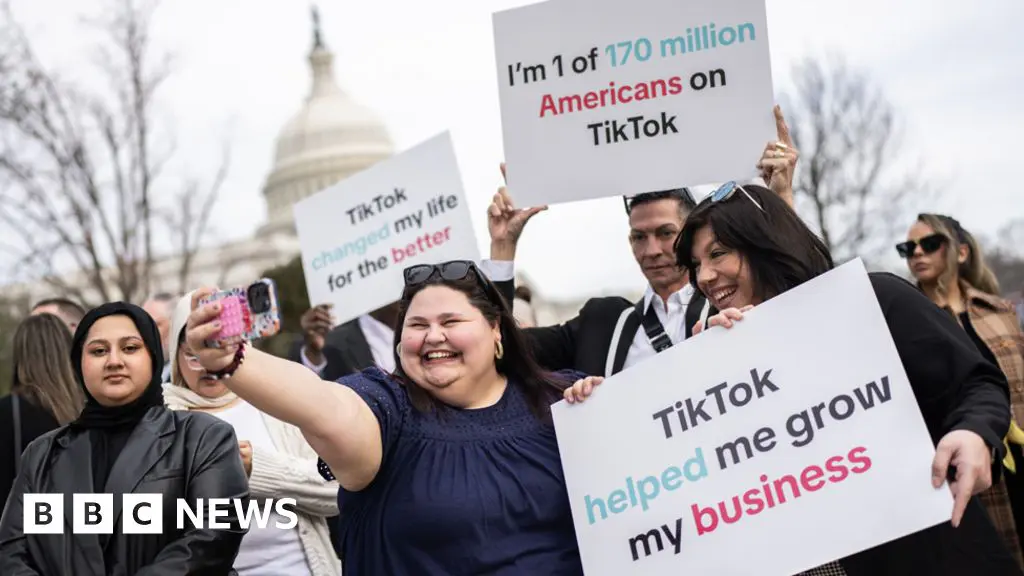
Social media company TikTok faces a ban in the US unless it is sold by its Chinese parent company ByteDance by 19 January.
However, President-elect Donald Trump - who takes office the next day - has asked the Supreme Court to delay the ban when it hears arguments about the case on 10 January.
US officials and lawmakers have accused TikTok's owner ByteDance of being linked to the Chinese government.
Many have cited national security concerns over the app, claiming that it could be forced by Beijing to hand over data about its 170 million US users.
The US Justice Department has said that because of its Chinese parent company, and access to data on American users, TikTok poses "a national-security threat of immense depth and scale".
In April 2024, US Congress passed a bill, which President Joe Biden signed into law, giving ByteDance nine months to find a US-approved buyer or see TikTok shut down across the US.
TikTok and ByteDance deny being linked to the Chinese government, or that any data would be handed over. They have also previously ruled out a sale.
The firms have filed multiple legal challenges against the law, saying it is "unconstitutional" and would have a "staggering" impact on free speech by censoring its US users.
They have said that even a temporary ban in early 2025 would have "devastating effects" on their operations and users.
The US Supreme Court has deferred TikTok and ByteDance's request for an emergency injunction to delay a potential ban while it hears their case.
It will hear arguments from the companies, and the US government, about whether the law violates the US constitutional right to free speech, on 10 January.
Donald Trump's victory in the 2024 election may offer TikTok a lifeline.
He tried to ban the app while he was in the White House in 2020, but has now called on the US Supreme Court to delay the ban while he works on a "political resolution"
Ahead of the hearing, his lawyer filed a legal brief saying that Trump "opposes banning TikTok" and intends to resolve the issues "through political means once he takes office".
Trump's meeting with TikTok's boss Shou Zi Chew in December also increased hopes among the law's opponents that he would intervene.
Online marketplaces, such as app stores, and web hosting platforms will have to stop making TikTok available to Americans if its ban goes ahead.
Politicians have told Apple and Google's bosses to be ready to pull TikTok from the App Store and Google Play store for iOS and Android devices.
Most people download apps onto their smartphones and tablets through app stores, so the ban would stop new users from getting TikTok.
It also would mean that people who already had the app would no longer be able to get future updates designed to improve security or fix bugs.
The bill forbids applications controlled by US adversary countries from being updated and maintained in the US.
It gives broad powers to the president to limit apps with ties not only to China but also Russia, Iran and North Korea.
At the heart of TikTok is its algorithm - a set of instructions that determine the content displayed to users, based on data about how they engaged with other material.
TikTok can use this data, as well as information about an individual user's device, location and keystroke rhythms, to recommend videos to users on its automatically generated For You feed.
Some researchers have previously claimed the app collects more data from users than others in order to power its highly personalised system.
However, rival social media platforms such as Facebook and Instagram collect similar user data.
TikTok is already banned in India, which was one of the app's largest markets before it was outlawed there in June 2020.
It is also blocked in Iran, Nepal, Afghanistan and Somalia.
The UK government and Parliament banned TikTok from staff work devices in 2023, as has the European Commission.
The BBC also advised staff to delete TikTok from corporate phones because of security fears.
Billionaire Frank McCourt Leads Formal Offer To Buy TikTok—Here’s Everything We Know As Ban Looms
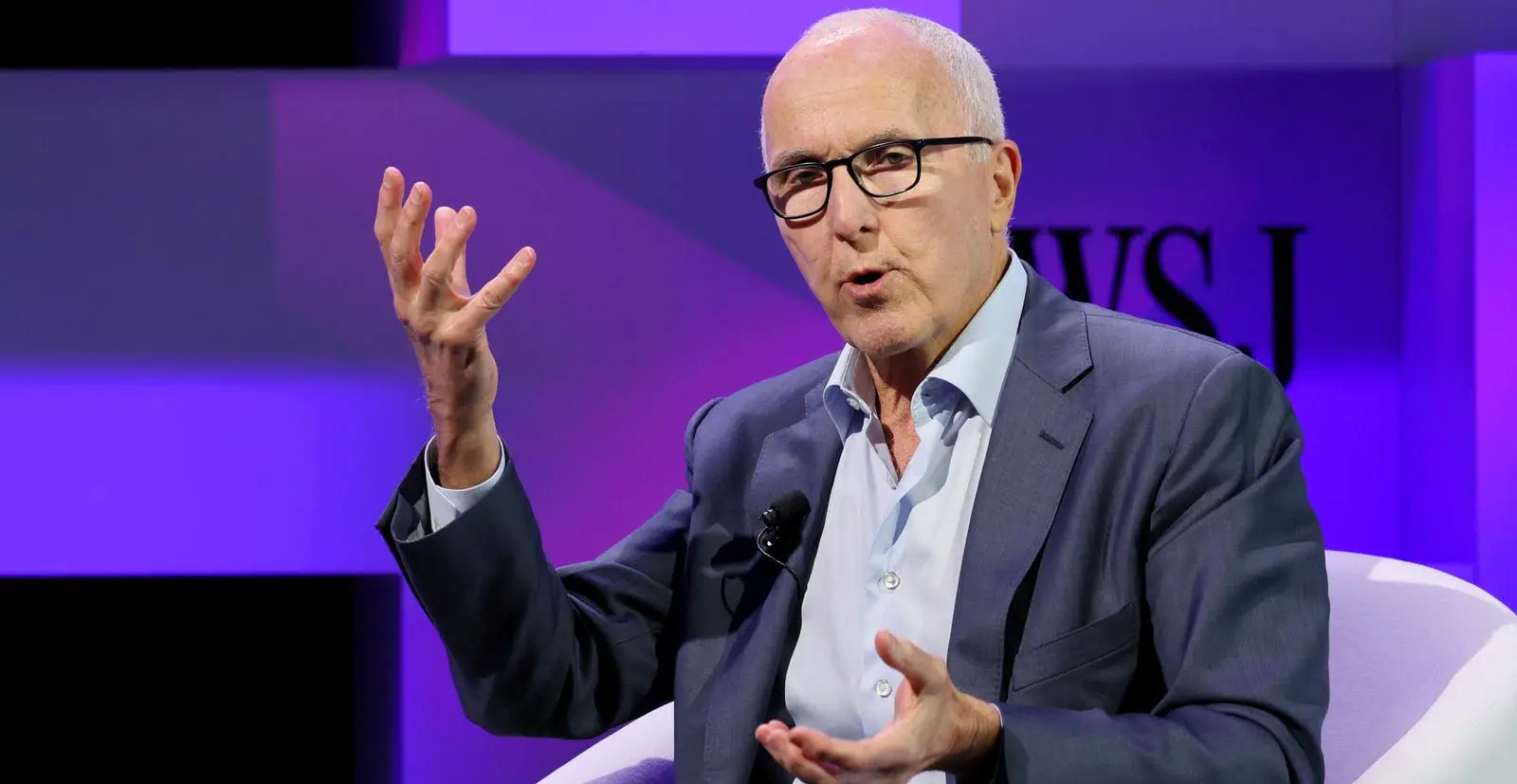
The People's Bid for TikTok, a project a spearheaded by Project Liberty founder and billionaire investor Frank McCourt, has delivered a proposal to the video app's Chinese parent company ByteDance to buy TikTok's U.S. assets ahead of a ban on the popular social media app set to take effect Jan. 19.
Get Forbes Breaking News Text Alerts: We’re launching text message alerts so you'll always know the biggest stories shaping the day’s headlines. Text “Alerts” to (201) 335-0739 or sign up here.
The ban against TikTok could become effective as early as Jan. 19 unless ByteDance commits to selling TikTok to another company or the Supreme Court overturns the federal law behind the ban. The court is expected to hear oral arguments Friday.
A range of companies have shown interest or been rumored to consider a purchase of TikTok. Project Liberty, the group leading The People’s Bid For TikTok, has built a consortium to purchase TikTok that includes O’Leary and Guggenheim Securities. The People’s Bid website notes it is not interested in acquiring TikTok’s algorithm, which ByteDance has shown no intent on selling. TikTok did not immediately respond to Forbes’ request for comment on The People’s Bid. Amazon has also been identified as a potential buyer, with experts pointing to TikTok and Amazon’s deepening ties, such as the announcement of a partnership this year allowing users to browse and purchase products from Amazon on TikTok. Amazon also became the third-largest advertiser on TikTok this year in the U.S. Oracle and Walmart could potentially make a joint bid for TikTok, as the two companies joined forces to buy the app in 2020 before reportedly being stopped by the Biden administration over security concerns. Microsoft could return to the table for TikTok after also trying to buy the app in 2020, though Microsoft CEO Satya Nadella said he was “happy with what I have” after talks fell through. Video-sharing platform Rumble publicly offered to buy TikTok early this year and could reenter the conversation, having said it was previously “ready to join a consortium with other parties seeking to acquire and operate TikTok inside the U.S.” China, which has vowed to block the sale of TikTok’s algorithm, would have to approve a sale of TikTok to another company, though the country is unlikely to do so.
McCourt, worth an estimated $1.4 billion as of Thursday, is an investor and entrepreneur with roots in his family's Boston-based construction business founded five generations ago. He bought the Los Angeles Dodgers in 2004 and sold it eight years later in what was the largest sports sale at the time, and has invested the proceeds into real estate, sports, tech and media. He has since invested $500 million to Project Liberty, an organization that advocates for data privacy.
Yass, who has an estimated net worth of $49.6 billion, is a GOP megadonor and a major investor in TikTok. He reportedly met with Trump and became possibly the biggest influence behind Trump’s switch from attempting to ban the app to later opposing its removal.. The co-founder of global trading firm Susquehanna International Group, which owns about 15% of ByteDance, Yass owned a $33 billion stake in TikTok as of this March and has financially backed conservative lawmakers opposing the ban, such as Sen. Rand Paul, R-Ky., and Rep. Thomas Massie, R.-Ky., donating $24 million and $32,200 to each, respectively, according to The Wall Street Journal. Yass has reportedly threatened to stop donating to Congress members who support the ban against TikTok, which would threaten his multi-billion dollar investment in the app. The billionaire has donated millions of dollars to conservative PACs such as Club For Growth Action ($16 million), the Congressional Leadership Fund ($10 million) and the Protect Freedom PAC ($6 million).
Potentially, though his options are limited. The Supreme Court agreed to hear arguments in January, meaning Biden’s Justice Department will defend the law in court instead of Trump’s Justice Department, which the president-elect could instruct to not enforce the law if the Supreme Court decides to uphold the ban before he takes office. However, even if Trump could ask the Supreme Court not to push for the ban, the move may lack the impact his administration would aim for, as Apple, Google and Oracle could still drop TikTok since they would risk financial penalties if they kept the app online and Trump later reconsidered his position on TikTok. Former Justice Department official Alan Rozenshtein wrote in a Lawfare op-ed that Trump could also lobby Congress to repeal the ban, though in doing so he would have to overcome the law’s bipartisan support. Additionally, Trump could allow TikTok to go down and bring the app back to app stores and the internet with a one-time, three-month extension that would potentially give time to help facilitate a sale of TikTok.
All of Americans’ TikTok user data could be moved to China in the event that the app is banned from the U.S. A precedent was set for such a move in 2020, when TikTok operations ended in India and left the app and ByteDance with access to millions of Indian users’ data years after the shutdown, according to Forbes.
About 170 million. That is how many Americans used TikTok as of April, according to the app.
At the heart of the federal government's issue with TikTok is national security and data privacy concerns linked to the app and its ties to China. U.S. officials have claimed the Chinese Communist Party could use the app to spy on Americans or influence public discourse. TikTok has shot down claims it is beholden to the Chinese government. The app’s CEO told Congress this year he “disagrees with the characterization" that the platform is spying on Americans and said TikTok is committed to protecting Americans’ data. After the law against TikTok was signed by Biden this year, the app said the requirement to sell itself is “illusory to the point of being no alternative at all.” Experts and reporting by Forbes have shown ByteDance and TikTok are significantly intertwined, as former National Security Agency general counsel Glenn Gerstell told Forbes this year: “There's no way to take the U.S. piece out of TikTok and sell it to someone.” ByteDance has tried to quell concerns about TikTok by noting 100% of U.S. traffic was routed to Oracle and U.S. Digital Service infrastructure in the U.S as of 2022. It has also claimed it is roughly 60% owned by institutional investors including the Carlyle Group, General Atlantic and Susquehanna International Group. However, Forbes’ reporting has revealed that ByteDance has used TikTok to spy on journalists and TikTok mishandled sensitive data, including financial information, Social Security numbers and personal contacts of creators, advertisers, celebrities and politicians.
Supreme Court Will Hear TikTok Ban This Week—Here’s What To Expect (Forbes)
Who Is Frank McCourt, The Billionaire Trying To Buy TikTok? (Forbes)
Why A Powerful U.S. Court Thinks The TikTok Ban Doesn’t Violate The 1st Amendment(Forbes)
The TikTok Law Gives You A Right To Your Data. Here’s How To Request It. (Forbes)
If Trump Wants To ‘Save’ TikTok, He Might Need It To Get Banned First (Forbes)
Congress Warns Apple And Google They Must Ban TikTok In January (Forbes)
If TikTok Is Banned, Americans’ Data Could End Up Back In China (Forbes)
TikTok Asks Supreme Court To Stop Federal Ban (Forbes)
TikTok Spied On Forbes Journalists (Forbes)
TikTok’s China Problem (Forbes)
CORRECTION (1/9): This story has been updated to note Project Liberty is not a non-profit. The Project Liberty Institute is the organization’s non-profit arm.
Is TikTok really getting banned this month? What to know before the Supreme Court hearing
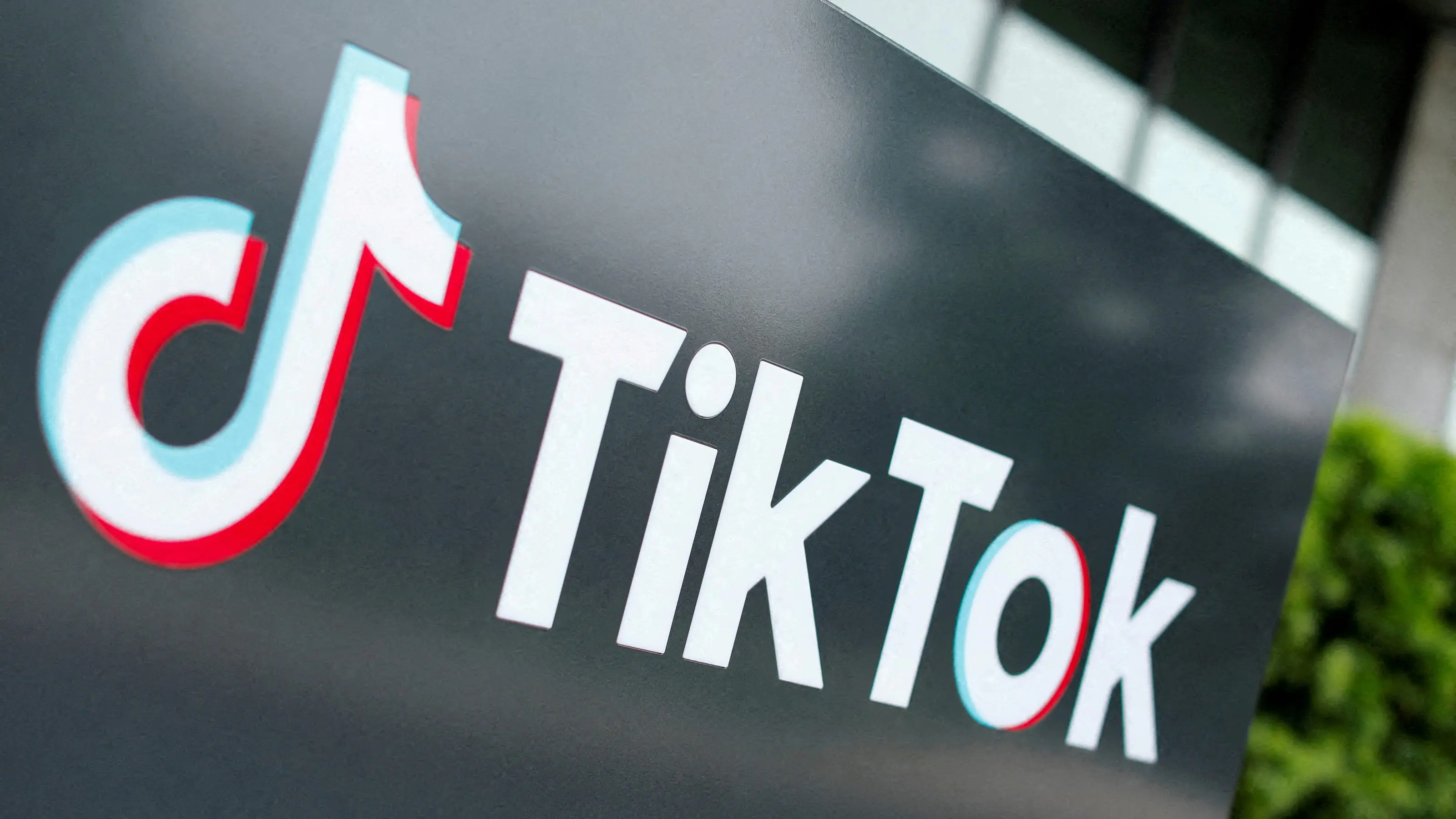
The fate of one of America's most used-social media platforms is in the balance of U.S. lawmakers arguing the Chinese-owned app poses a national security threat.
This Friday, representatives of TikTok's parent company ByteDance will plead to the U.S. Supreme Court to halt the decision of a looming ban later this month.
On April 24, President Joe Biden signed legislation into law that will require ByteDance to sell the app by Jan. 19. If it fail to do so by the deadline, TikTok will no longer be available to download and internet service providers will be legally prohibited from allowing access on U.S. internet browsers.
It's also uncertain what President-elect Donald Trump's role in a potential ban will be when he takes office on Jan. 20. While he tried to ban the app during his first term, he has expressed a change of heart during his 2024 campaign.
At December Mar-a-Lago press conference, he admitted TikTok has a "warm spot in my heart" as he credited the app for a boost of support from young voters.
"It's a tough decision to make," Trump told CNBC in a March interview. "Frankly, there are a lot of people on TikTok who love it."
Here's what to know about the pending TikTok ultimatum.
The U.S. ban on TikTok would go into effect as soon as Jan. 19 if ByteDance does not sell the platform by then.
What's true? What's false? Sign up for USA TODAY's Checking the Facts newsletter.
The Supreme Court is set to review TikTok' arguments on Friday, Jan. 10, just over a week before the ban could be implemented.
TikTok wants SCOTUS to overturn a ruling by the U.S. Court of Appeals for the District of Columbia Circuit, which states that the legislation's infringement of free speech rights is justified because of national security concerns.
The ban will go into place on Sunday, Jan. 19, 2025, if ByteDance does not sell the platform by then.
Though China has been vocal in the past about its opposition to selling TikTok, billionaire Frank McCourt has expressed his interest in purchasing the U.S. portion of the platform with a group of associates. McCourt, founder of Project Liberty and executive chairman of McCourt Global, said a consortium of associates has verbally pledged up to $20 billion for the purchase.
However, if McCourt purchased TikTok, it would only be the U.S. portion and would not include TikTok's algorithm, which China sees as its intellectual property, McCourt told CBS' "Face the Nation" earlier this month.
Trump's vision for TikTok when he takes office is unclear. Despite steps he took during his first term to ward off ByteDance, he has expressed different feelings for the app more recently.
Last week, Trump said during a press conference that he has a "warm spot" for TikTok in his heart, as he believes the app helped him gain ground with young voters in the 2024 presidential election.
“TikTok had an impact, and so we're taking a look at it,” Trump said. “I have a little bit of a warm spot in my heart. I'll be honest."
Trump's team did not respond to a USA TODAY request for comment.
Concerns about national security stem from worries that ByteDance, which is based in Beijing, has access to American data and is sharing it with the Chinese government.
In 2020, Trump issued an executive order regarding TikTok. As part of the order, Trump tried to ban TikTok in the U.S. and prohibit any transactions with the company, according to the Trump White House archival website. However, this ban never went into place.
In 2021, Biden revoked Trump's proposed ban and issued a new executive order regarding ByteDance, which said that the company "continues to threaten the national security, foreign policy and economy of the United States," a U.S. Court of Appeals for the District of Columbia Circuit court opinion states. In 2022, Biden signed a bill that prohibited the use of TikTok on government devices.
There are over 170 million TikTok users based the U.S., an app spokesperson told USA TODAY last month.
At least a third of U.S. adults use TikTok, according to a November report by the Pew Research Center, with at least 59% of them being under 30. The center reported that 95% of adult users say their primary use of the app is entertainment.
TikTok has around 7,000 U.S. employees, according to Reuters. It is uncertain what will happen to those jobs if a U.S. ban were to go into effect.
TikTok is a social media application known for its short-form videos. Users can create, post and interact with videos on the app. TikTok is popular for its scrolling algorithm and allows users to post videos between three seconds and 10 minutes long. Users may add different filters, backgrounds, music and stickers to their videos.
Contributing: Maureen Groppe and Karissa Waddick
Greta Cross is a national trending reporter at USA TODAY. Follow her on X and Instagram @gretalcross. Story idea? Email her at [email protected].
Anthony Robledo covers national trending news for USA TODAY. Follow him on X and Instagram @anthonyarobledo or email him at [email protected]
What happens after the TikTok ban?
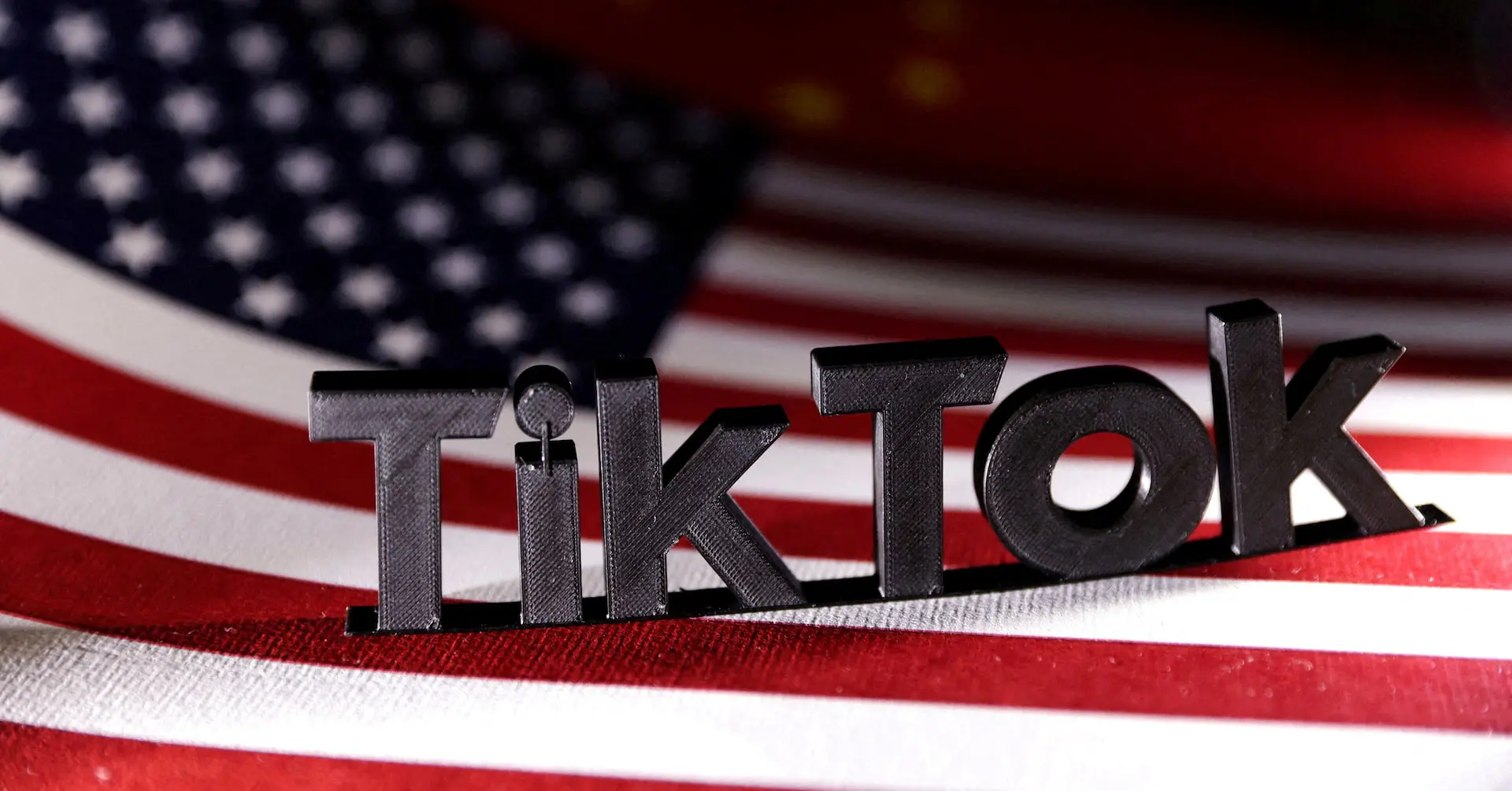
Jan 6 (Reuters) - The U.S. Supreme Court will hear arguments on Friday from TikTok and its China-based owner ByteDance, which is seeking to block a law signed by President Joe Biden that will ban the short-form video app beginning Jan. 19 unless it is divested from ByteDance, due to national security concerns. TikTok requested an injunction to pause the ban during the legal process, but the Supreme Court did not immediately act on the request.
Here’s what could happen on Jan. 19.
New users will not be able to download TikTok from app stores and existing users will not be able to update the app, because the law prohibits any entity from facilitating the download or maintenance of the TikTok application. In a Dec. 13 letter, U.S. lawmakers told Apple (AAPL.O) , opens new tab and Alphabet’s (GOOGL.O) , opens new tab Google, which operate the two main mobile app stores, that they must be ready to remove TikTok from their stores on Jan. 19.
Cloud service provider Oracle could see some disruption to its work with TikTok. Oracle hosts TikTok’s U.S. user data on its servers, reviews the app’s source code and delivers the app to the app stores.
Google declined to comment, while Oracle and Apple did not respond to requests for comment.
TikTok’s 170 million users in the U.S. will likely still be able to use the app because it is already downloaded on their phones, experts say. But over time, without software and security updates, the app will become unusable.
Some users have begun posting TikTok videos instructing others on how to use virtual private networks (VPNs), which mask an internet user’s location, as a way to circumvent the possible ban.
Content creators who have built businesses from their TikTok followings are preparing for the worst. Nadya Okamoto, who has 4.1 million followers and founded August, a menstrual products brand, said TikTok helped her business grow organically through viral videos. A TikTok ban could force her and other small businesses to spend more on marketing and raise their costs.
"It's very stressful," she said. "If TikTok goes away, we'll be okay, but it is going to be a hard hit."
TikTok’s 7,000 employees in the U.S. are still trying to figure out their fate. After a U.S. appeals court upheld the sell-or-ban law on Dec. 6, pessimism spread among staffers who began worrying about layoffs, said one current employee.
But the company has continued to make job offers for new roles, prompting some confused job seekers to seek advice on Blind, an anonymous forum for employees to discuss companies.
One user posted on Blind that they received a job offer from ByteDance in San Jose, California, starting in February. Others commented on the post, counseling the user to accept the offer and use it as leverage in other interviews.
"I signed the offer and will wait and watch how the situation unfolds," the user said in the Blind post.
TikTok’s U.S. ad revenue is expected to total $12.3 billion in 2024, according to research firm Emarketer, and while that is much smaller than Instagram owner Meta Platforms (META.O) , opens new tab, advertisers say TikTok’s devoted user base means some brands will try to advertise beyond Jan. 19.
“The ongoing assumption is the app might not be updatable, but you’ll see a groundswell of usage,” said Craig Atkinson, CEO of digital marketing agency Code3. The app’s ecommerce feature TikTok Shop, which lets users purchase products directly from videos, has no direct competitor that advertisers can easily switch to, Atkinson said, adding that his agency was signing new contracts with clients to build TikTok Shop campaigns even as of late December.
Some advertisers may continue spending beyond Jan. 19 on TikTok and reevaluate if the app sees declining usage or performance, said Jason Lee, executive vice president of brand safety at media agency Horizon Media.
TikTok has repeatedly said it cannot be sold from ByteDance. That hasn’t deterred billionaire businessman Frank McCourt, a former owner of the Los Angeles Dodgers baseball team who said he has secured $20 billion in verbal commitments from a consortium of investors to bid for TikTok.
McCourt has not yet spoken with ByteDance, but said he believes the Supreme Court will uphold the law requiring TikTok’s divestment, after which the parent company would be more open to sale discussions.
McCourt and his team have had "preliminary conversations" with members of the incoming administration of President-elect Donald Trump, who had tried to ban TikTok during his first term in the White House but has since reversed his views, and are also seeking a CEO to lead the app. McCourt's business plan for TikTok includes migrating the app onto open-source technology and earning revenue through ecommerce and licensing data for AI training.
The TikTok ban heads to the Supreme Court tomorrow. Here's what to know about the case.
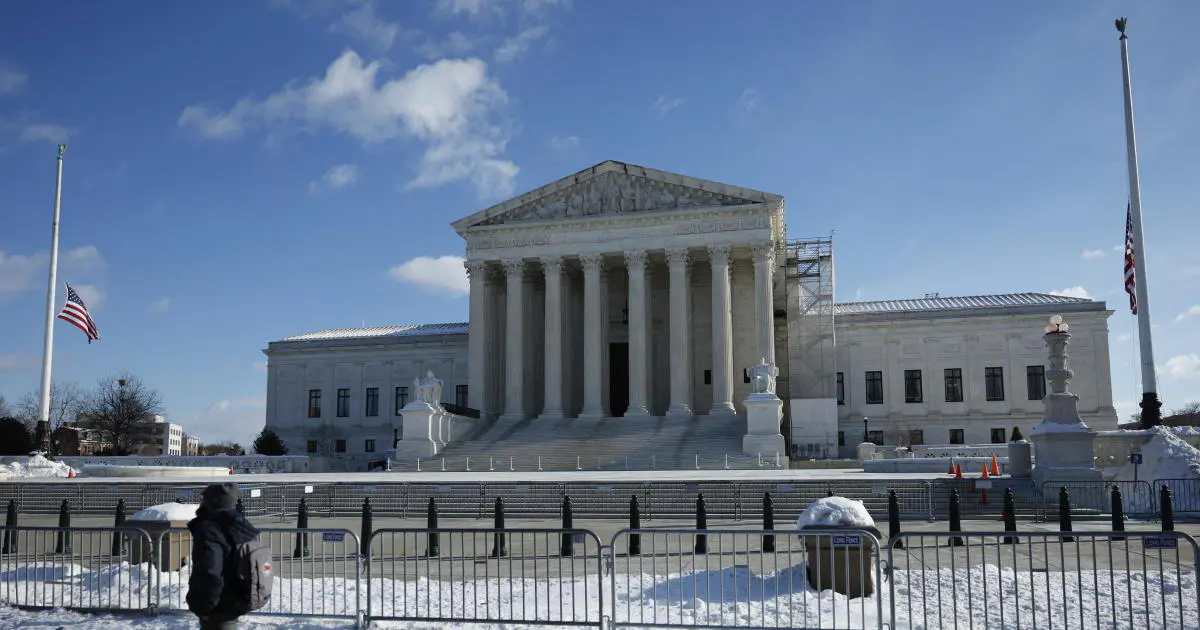
Washington — The Supreme Court is set to hear arguments Friday morning on whether to overturn or delay a law that could lead to a ban on TikTok in the U.S. in the coming days.
The law is set to take effect on Jan. 19, nine months after it swiftly passed Congress with bipartisan support and was signed into law by President Biden. It requires the widely popular app to cut ties with its China-based parent company, ByteDance, or lose access to app stores and web-hosting services in the U.S. The law also gives the president the ability to grant a 90-day delay in its implementation if a sale is in progress.
The case pits the First Amendment's right to free speech against what the federal government and lawmakers say are threats to national security posed by TikTok. The Supreme Court moved with extraordinary speed in considering the case, agreeing to take up the dispute just two days after lawyers for the platform sought its intervention on an emergency basis.
The question before the court is whether the law targeting TikTok violates the First Amendment. Here's what to know about the case:
The legal battle arose from a law passed by Congress as part of a foreign aid package in April. Called the Protecting Americans from Foreign Adversary Controlled Applications Act, the measure makes it unlawful for third-party service providers like Google or Apple to "distribute, maintain or update" an app controlled by a foreign adversary by providing certain services, such as offering it in app stores.
Under the law, any app operated by ByteDance, TikTok, or its subsidiaries is considered a "foreign adversary controlled application." The designation also covers apps operated by a "covered company" controlled by a foreign adversary — China, Russia, North Korea or Iran.
The prohibitions are set to take effect 270 days after the law was enacted, on Jan. 19. Under the law, TikTok can remain available, however, if it divests from ByteDance. The measure also allows the president to grant a single, 90-day extension if a sale is underway.
In a brief laying out its arguments to the Supreme Court, the U.S. government said the vast amount of information TikTok collects on its users could be wielded by the Chinese government for "espionage or blackmail" purposes or to "advance its geopolitical interests" by "sowing discord and disinformation during a crisis."
"In response to those grave national-security threats, Congress did not impose any restriction on speech, much less one based on viewpoint or content. Instead, Congress restricted only foreign adversary control: TikTok may continue operating in the United States and presenting the same content from the same users in the same manner if its current owner executes a divestiture that frees the platform from the [People's Republic of China's] control," the Justice Department said.
Lawyers for TikTok have argued that shuttering the app in the U.S. will silence not only its speech, but also that of the 170 million Americans who regularly use it. In its filing, lawyers for the platform called the potential shutdown "unprecedented" and said the government's justification is "at war with the First Amendment."
Additionally, TikTok has argued that divesture from ByteDance is not possible, and the parent company said in April that it will not sell the platform.
A group of eight TikTok users also challenged the law on First Amendment grounds and have argued that outlawing the platform will deprive them of access to a "vital communications forum," through which they can earn a living and spread ideas.
The legislation, lawyers for the creators wrote in a filing with the court, "violates the First Amendment because it suppresses the speech of American creators based primarily on an asserted government interest — policing the ideas Americans hear — that is anathema to our nation's history and tradition and irreconcilable with this court's precedents."
But an appeals court disagreed with TikTok and the users' First Amendment claims. In a December ruling, a three-judge panel from the U.S. Court of Appeals for the District of Columbia Circuit was sympathetic to the government's argument that TikTok poses a national security risk. The appeals court later rejected TikTok's bid for a temporary pause on the ban while it sought the Supreme Court's review.
Thomas Berry, an expert in constitutional law at the Cato Institute, said it would be "unprecedented" for the Supreme Court to uphold a law that restricts such a popular and widely used platform in the U.S., but said its reasoning if it sides with the government is significant.
"If the court relies on notions of disinformation or content manipulation as a justification, that would be extremely harmful to the First Amendment doctrine because it would essentially give a greenlight to the government targeting a speech platform for the content it carries," he said. Berry filed a friend-of-the-court brief in support of TikTok and the users.
But if the court upholds the law based on the data collection concerns, he said "that would still be unfortunate deference shown to government arguments that haven't been backed up by a public record, but that would potentially be more of a good-for-this-case-only type of ruling."
Additionally, Berry said the impact of a ban on users is an important perspective for the court to consider.
"It humanizes the speech happening on this platform and emphasizes, especially to justices who might not be familiar with it, that this isn't just speech being broadcast in from foreign countries," he said. "This is primarily Americans speaking to other Americans, and lots of totally apolitical speech is happening and being found through the TikTok discovery algorithm."
Jennifer Safstrom, who directs the Stanton Foundation First Amendment Clinic at Vanderbilt Law School, said TikTok may have more of an uphill battle in making its case because "one of the strengths of the government's position is that the executive and legislative branches are given a lot of deference with respect to national security."
"So there's often a hesitancy for courts to second-guess the political branches on those kinds of national security questions," Safstrom told CBS News.
Patrick Toomey, the deputy director of ACLU's National Security Project, said the government has not supported its claims against TikTok with concrete public evidence. The ACLU has urged the Supreme Court to block the ban in a friend-of-the-court brief.
"The government can't impose this type of total ban unless it's the only way to prevent extremely serious and imminent harm to national security," Toomey told CBS News. "That means not just gesturing at the possibility that these types of harms could come from exploitation of TikTok, but providing evidence that either those harms are ongoing and widespread or are imminent, and we haven't seen that kind of evidence."
The Supreme Court is hearing the case in the final days of the Biden administration. President-elect Donald Trump, who in recent months has expressed support for TikTok, takes office a day after the law is set to go into effect.
A lawyer for Trump filed a friend-of-the-court brief asking the Supreme Court to pause the law's implementation, saying the incoming president opposes banning TikTok at this time and wants the ability to resolve the dispute through "political means."
"President Trump takes no position on the merits of the dispute. Instead, he urges the Court to stay the statute's effective date to allow his incoming Administration to pursue a negotiated resolution that could prevent a nationwide shutdown of TikTok, thus preserving the First Amendment rights of tens of millions of Americans, while also addressing the government's national security concerns," Trump's attorney D. John Sauer wrote.
The president-elect intends to nominate Sauer for solicitor general in his second term. If confirmed by the Senate, Sauer will argue on behalf of the federal government before the Supreme Court.
Trump recently met with TikTok's chief executive at his Mar-a-Lago estate in Florida and has praised the platform for helping him win over younger voters in the November election.
The president-elect's support for the widely popular app is an about-face from his first term in office. In August 2021, he took unilateral action that would have effectively banned TikTok in the U.S. after finding that its data collection posed a risk that China would use Americans' data for malign purposes. The ban, however, never took effect after it was blocked by a federal court and the executive order rescinded by Mr. Biden.
Though Trump is pushing for a delay, members of his incoming administration have firmly backed restricting TikTok, including his nominee to be secretary of state, Republican Sen. Marco Rubio of Florida, and his national security adviser pick, Republican Rep. Mike Waltz of Florida.
Leaders of the House China Committee and Republican Sen. Mitch McConnell of Kentucky also submitted friend-of-the-court briefs to the Supreme Court, both arguing that the law should be upheld.
Lawmakers and intelligence agencies have long had suspicions about the app's ties to China and have argued that the concerns are warranted because Chinese national security laws require organizations to cooperate with intelligence gathering. FBI Director Christopher Wray told lawmakers last year that the Chinese government could compromise Americans' devices through the software.
In response to the national security concerns, Congress prohibited TikTok on federal government devices in 2022, and a majority of states have barred the app on state government devices.
TikTok has argued that several issues would arise if the platform is forced to cut all ties to ByteDance. Because the Chinese government is opposed to selling the algorithm that tailors video recommendations to each user, a new buyer would have to rebuild it from scratch. The platform would also become a "content island" in the U.S. — if it cannot share data with ByteDance, "American users would be unable to access global content, and American creators would be unable to reach global audiences," its lawyers said.
Still, TikTok has several pathways to avoid a ban outside of Supreme Court intervention, experts told CBS News.
Trump could take action once he's in office and ask the Justice Department not to enforce the law or prosecute tech companies, like Apple and Google, who host TikTok in their app stores. Trump also has the authority to issue a 90-day delay of the law after Jan. 19, though he would have to certify to Congress that "evidence of significant progress" toward a divestiture has taken place.
TikTok won't disappear from Americans' phones on Jan. 19 if the law takes effect. However, users would not be able to update the app and those who don't already have it would not be able to download it.
Supreme Court set to hear oral arguments on challenge to TikTok ban
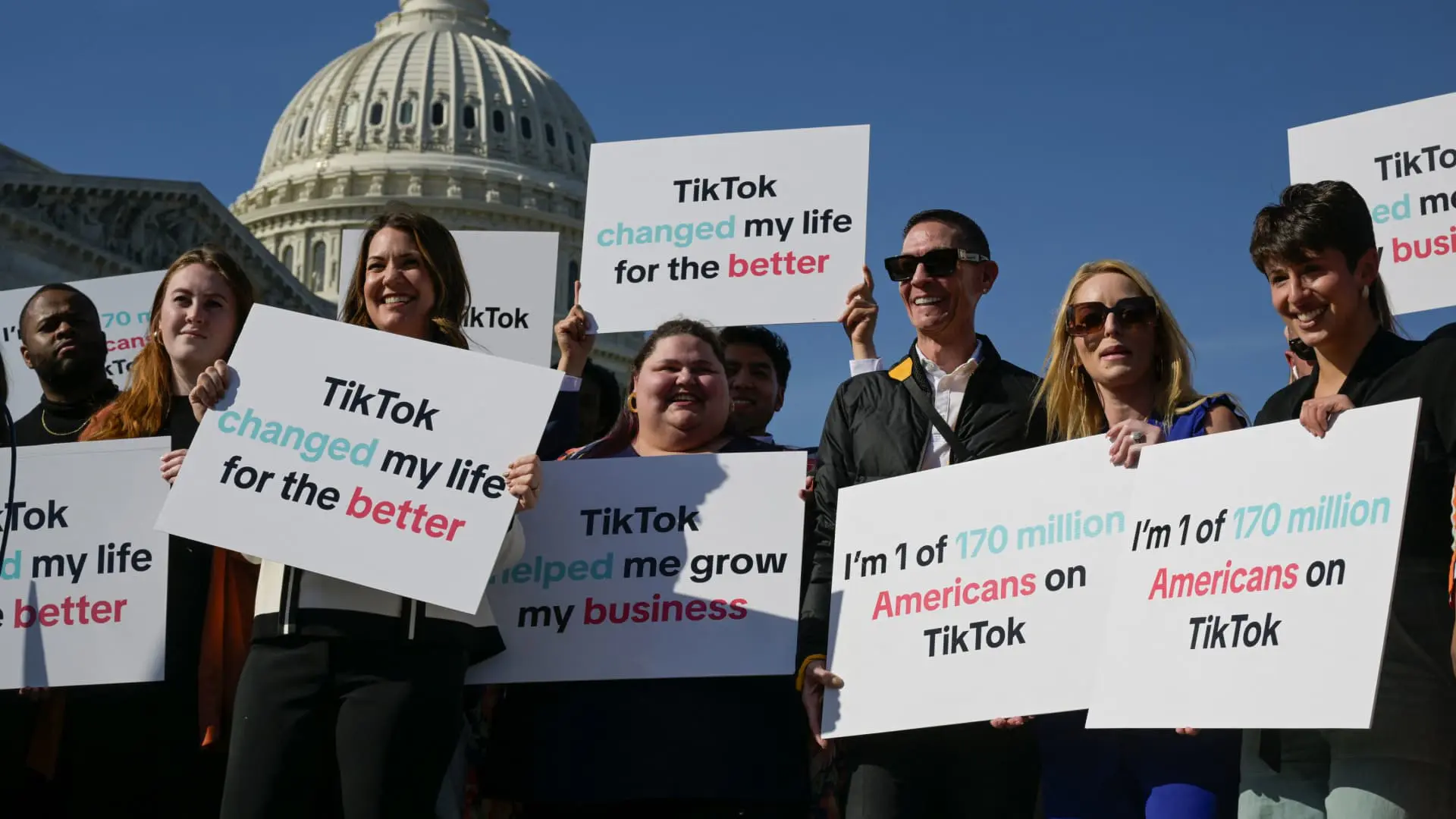
The Supreme Court on Friday will hear oral arguments in the case involving the future of TikTok in the U.S., which could ban the popular app as soon as next week.
The justices will consider whether the Protecting Americans from Foreign Adversary Controlled Applications Act, the law that targets TikTok's ban and imposes harsh civil penalties for app "entities" that continue to carry the service after Jan.19, violates the U.S. Constitution's free speech protections.
It's unclear when the court will hand down a decision, and if China's ByteDance continues to refuse to divest TikTok to an American company, it faces a complete ban nationwide.
The roughly 115 million U.S. TikTok monthly active users could face a range of scenarios depending on when the Supreme Court hands down a decision.
If no word comes before the law takes effect on Jan. 19 and the ban goes through, it's possible that users would still be able to post or engage with the app if they already have it downloaded. However, those users would likely be unable to update or redownload the app after that date, multiple legal experts said.
Thousands of short-form video creators who generate income from TikTok through ad revenue, paid partnerships, merchandise and more will likely need to transition their businesses to other platforms, like YouTube or Instagram.
"Shutting down TikTok, even for a single day, would be a big deal, not just for people who create content on TikTok, but everyone who shares or views content," said George Wang, a staff attorney at the Knight First Amendment Institute who helped write the institute's amicus briefs on the case.
"It sets a really dangerous precedent for how we regulate speech online," Wang said.
Dozens of high-profile amicus briefs from organizations, members of Congress and President-elect Donald Trump were filed supporting both the government and ByteDance.
The government, led by Attorney General Merrick Garland, alleges that until ByteDance divests TikTok, the app remains a "powerful tool for espionage" and a "potent weapon for covert influence operations."
Trump's brief did not voice support for either side, but it did ask the court to oppose banning the platform and allow him to find a political resolution that allows the service to continue while addressing national security concerns.
The short-form video app played a notable role in both Trump and Democratic nominee Kamala Harris' presidential campaigns in 2024, and it's one of the most common news sources for younger voters.
In a September Truth Social post, Trump wrote in all caps Americans who want to save TikTok should vote for him. The post was quoted in his amicus brief.
It's unclear when the Supreme Court will issue its ruling, but the case's expedited hearing has some predicting that the court could issue a quick ruling.
The case will have "enormous implications" since TikTok's user base in the U.S. is so large, said Erwin Chemerinsky, dean of Berkeley Law.
"It's unprecedented for the government to prohibit platforms for speech, especially one so many people use," Chemerinsky said. "Ultimately, this is a tension between free speech issues on the one hand and claims of national security on the other."
WATCH: It appears TikTok could really get shut down, says Jim Cramer
